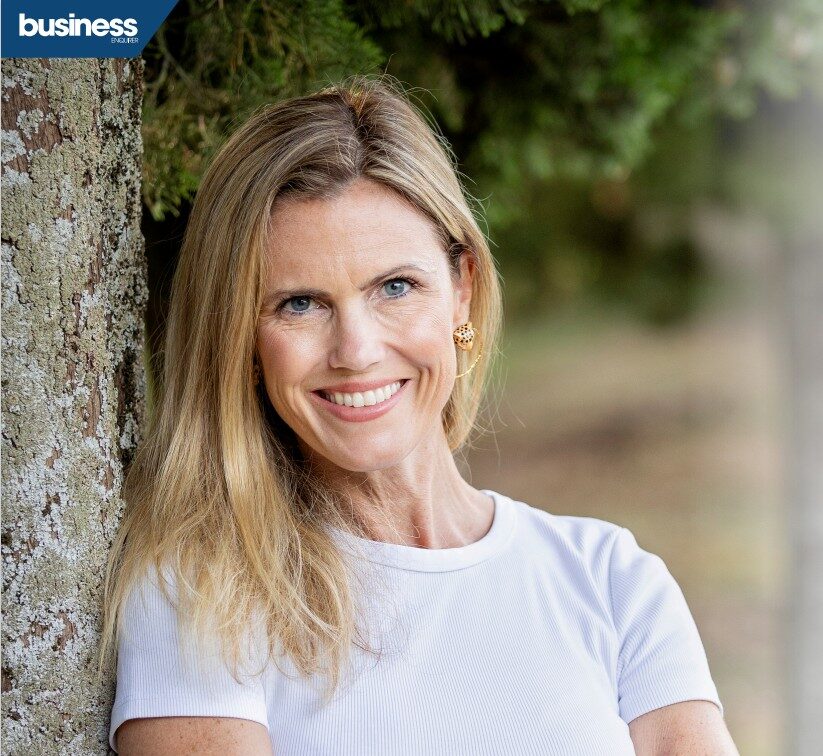SCB’s Head of Carbon Natalia Beales spoke to Proactive’s Thomas Warner about the role that voluntary carbon markets are playing in the global drive toward net zero.
Natalia responds to some of the criticism levelled at carbon offset schemes, saying that their environmental and wider social benefits are “enough to put a lot of greenwashing accusations to bed.” She adds that the “world does not have time” to prevaricate on taking meaningful action.
Proactive: What are voluntary carbon markets?
Natalia: Scientists have been telling us that the planet has already heated up to 1.1 degrees, so we must take urgent action to reduce our emissions to keep within 1.5 degrees temperature change. We must reduce our emissions by at least 50 percent by 2030 to be on our pathway to net zero by 2050.
We also know that at least one third of cost-effective emissions reductions can be delivered through nature-based solutions, which aim at protecting, better-managing, and restoring our forests, our wetlands, and our soils. The voluntary carbon market enables organisations, individuals, governments to voluntarily purchase verified emissions reductions which can be delivered in the form of carbon offsets.
It’s a crucial tool to unlock the full potential of nature-based solutions which historically have been under-valued and under-funded. And also it’s a crucial tool, in our opinion, to achieve carbon neutrality which would lead to net zero.
Proactive: What is SCB’s role?
Natalia: Together with my colleagues for the last 17 years we’ve been working relentlessly to equip our customers with low carbon solutions. There are multiple tipping-points within the climate which are pushing the Earth to the point of no return. For us, our main goal, and also our main challenge, have been reversing this process and trying to stop climate change while scaling some green energy markets; renewable energy markets, and improving our climate solutions for corporate customers on their journey to carbon neutrality and subsequently to net zero.
Proactive: What does it mean in terms of carbon savings?
Natalia: In terms of carbon savings, for the last 17 years through our transactions, SCB has assisted in abating more than 600 million tonnes of CO2, and in 2022 alone the carbon desk of SCB transacted more than 70 million carbon offsets and other products with our clients to help them with carbon neutrality.
Proactive: How effective do you think the carbon markets are for getting to net zero?
Natalia: we strongly believe that the carbon projects implemented with integrity, credibility, quality and good control on the ground will continue to be an essential tool for us to achieve a net zero economy. We don’t live in a perfect world and the transition to a net zero economy will not be quick or easy and we will continue to see hurdles on direct emission removals by corporations from technological and financial constraints.
Instead of doing nothing, we urge our customers to support projects which do not only have climate impact, but also give many, many benefits from a social, employment, family, health perspective to millions of communities who are in immediate need of this.
Proactive: What can individual companies do?
We urge our customers to prioritize their internal emission reduction; transition to renewable energy and green energy; but to do that at the same time as offsetting while also giving that extra mile of finance to least-developed countries and indigenous people in those countries.
Reduction can take years, supporting some incredible climate projects can make an immediate difference now. In response to consumer stakeholder pressure, we see some of the world’s largest corporations coming up with pledges which have been criticised by the media in some cases, the media calling them elusive, unclear, and too long-term. We just don’t see many short-term solutions now.
Net zero commitments cover 83 percent of global emissions, including 133 countries and hundreds of corporations which require us to cut 25 billion tonnes of GHG between now and 2030. It’s a tremendous effort and that effort would require pulling all the solutions we have at once.
Proactive: What are the main challenges for the voluntary carbon market?
Natalia: If I go back to last year when many of the challenges have started, 2022 – and I’m sure a lot of people will agree with me – was very dramatic, volatile and probably started the worst energy and food crisis we’ve seen in many years. The global energy crisis triggered by the war in Ukraine, and the missed climate targets by countries which were prompted by the return of more oil and more coal; have coupled together to create setbacks for us to transition to an emissions-free economy.
So while showing some resilience at the start of the year to the economical and political events, the carbon market also ended the year unfortunately as a big bear, but despite the recession, despite all the doom and gloom and the political and economical experience, the climate issue still remains the top of our customers’ agendas with clear emissions reductions targets, net zero pathways, and budgets set.
While the transition to the net zero economy was somewhat slowed down, complicated in the short term, in the medium to long-term we feel it will serve as an accelerator for us to move to new green energy sources and carbon neutrality. And if I may support this point, December 2022 for example, had a significant uptake in customer consumption. We saw 27.6 million tonnes of CO2 consumed, and retired on 6 recognized carbon registries. Which marked in itself the largest month of demand in the voluntary carbon market.
Proactive: Do you think we’re going to see a continuation of that in this calendar year 2023?
Natalia: I think the start of 2023 continued the perfect storm with many of the challenges continuing, extending into commodity markets in general. We continue to see some downward pressure, we continue to see some large volumes on sale. However, the consumption is growing, in our opinion.
What we saw in December, we saw a very similar picture in February this year, which was the largest month of demand on one of the largest registries, Verra, more than 16 million tonnes of CO2 retired that month.
Proactive: What do you say to people who are sceptical about carbon offsets?
Natalia: We’ve seen a lot of debates and negative publicity recently questioning the additionality of some carbon projects, providing more feedstock for click-baiting headlines. I think it’s a proven fact that we pay more attention to negative news than to positive news. Also, if I may play devil’s advocate, it is easier to sell scandalous headlines than scientific fact in a boring magazine. And of course negativity breeds negativity and has an adverse effect on decision making and the confidence of the end consumer.
I feel there are challenges ahead and we might see a temporary slow down on the back of some of the arbitrary reviews from the consumption point of view but in the long run or even the medium-term, I’m very bullish that the market will scale up. We need the voluntary carbon market to achieve carbon neutrality, which is the pre-requisite for net zero.
Some recent reports might point at the decline in consumptions, but we also have reports of record investments into the upstream, which is carbon offset project development.
Proactive: What will be the consequences if we can’t get people more on board with these sorts of projects?
Natalia: I think that brings me back to the point that one third of cost-effective emissions reductions can be delivered through nature-based solutions. What is at stake if we don’t build confidence in high-integrity carbon credit markets?
Carbon credits are one of the few mechanisms which we currently have for funding the widescale conservation of our natural ecosystems and of course wider climate solutions. What would be at stake?
#1 we dramatically reduce that funding for our nature, for our ecosystems, while we’re waiting for this perfect removal technology to work. Which will have to be first tested, proven, and of course funded and scaled-up.
#2 that would allow our carbon sequestering systems to be eradicated, biodiversity to potentially be destroyed, and indigenous people and communities in least-developed countries deprived of this extra mile of finance and social benefits which a carbon project offers.
#3 we allow organisations to do nothing while they are waiting for this perfect solution to work, and to scale up. We just don’t have time for this.
Proactive: What are the social benefits of carbon offset projects?
Natalia: I think it’s best if I give you examples from our involvement in the upstream. We understand the significance of the carbon offset programmes which are developed with integrity, quality, and credibility, and we’ve been funding some carbon programmes primarily in least developed countries. We have five programmes now and we were lucky to visit all of them last year. Through our visits I’ll give you a few examples of social benefits I’ve observed myself. One of the examples was in India where we’re funding an afforestation projet in Uttarakhand in the Himalayas – the project is entirely implemented by the community, planting the trees, safeguarding, protecting them, growing them, they’re planting native species which give them by-products. If you take an apricot tree, they would grow apricots and make creams or jams or some cosmetic products, which gives them employment of course and this extra mile of finance.
In Nepal we fund clean water solutions, or filters, for schools and larger communities. In Nepal, a woman can spend up to seven days per month collecting wood to boil water so it’s safe to drink. By giving them filters, that reduces the firewood they use, it also helps the forest not to be degraded or deforested. It also gives them back those seven days they spent on this activity, which they can use for education for their family, for their society.
In Bangladesh we have an amazing project on the border with Myanmar, where we provide clean cooking solutions to Rohingya refugees. There are more than 1.5 million refugees clustered in not-that-big an area. We’ve been told, and I’ve seen it with my own eyes, multiple tree stumps, as the flow of refugees continued there was so much land deforested and the size of a football pitch could be deforested in a day. Again, it brings me to the same point, it’s not just social benefits, it’s health benefits, but also how much forest people damage and how much time people spend of their personal time doing such activity. It improves health, it improves social benefits.
For me that’s enough to put a lot of ‘greenwashing’ accusations to bed.
Proactive: Hopefully you’ll be back to give us an update on your work before long, until then thank you very much for joining us today on Proactive.
Consult the full article on Proactive Investors here: https://www.proactiveinvestors.co.uk/companies/news/1008366/scb-group-head-of-carbon-says-world-does-not-have-time-1008366.html



